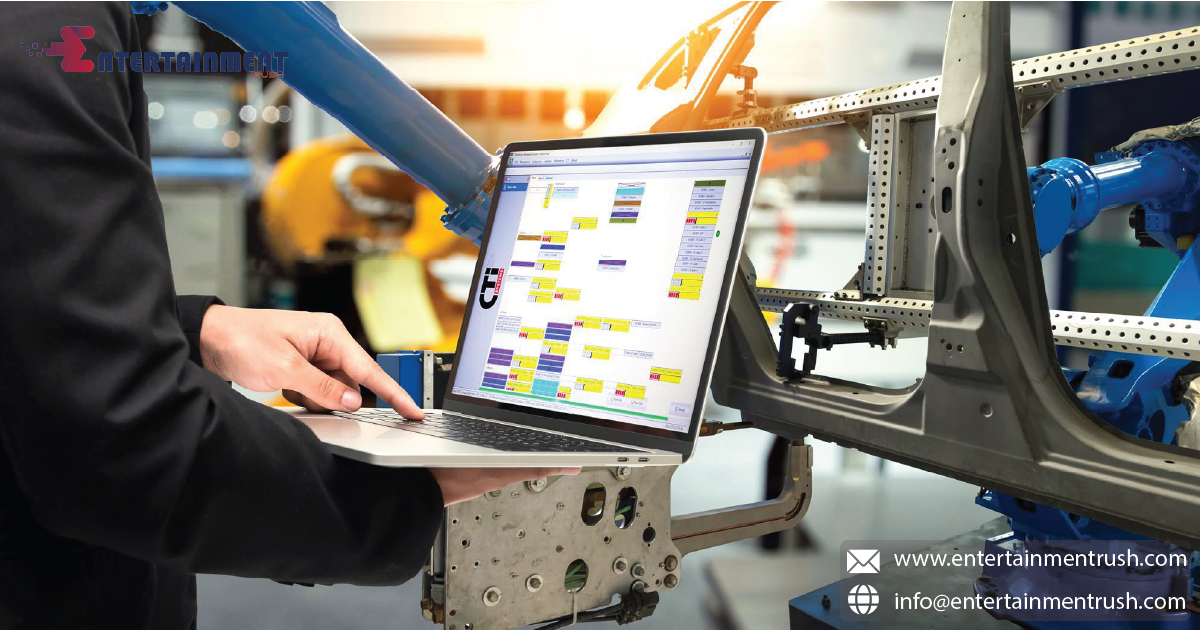Amid the Fourth Industrial Revolution, often referred to as Industry 4.0, the automotive sector in the United States is experiencing a profound transformation driven by digitalization and automation. This shift towards smart manufacturing and advanced technologies is revolutionizing every aspect of the automotive industry, from design and production to supply chain management and customer experience. Let’s delve into the impact of Industry 4.0 on the automotive sector in the United States and explore how digitalization and automation are reshaping the future of mobility.
The Rise of Industry 4.0 in Automotive
Industry 4.0 represents the convergence of digital technologies with traditional manufacturing processes, enabling unprecedented levels of connectivity, automation, and data-driven decision-making. In the automotive industry, this translates into the adoption of technologies such as the Internet of Things (IoT), artificial intelligence (AI), robotics, big data analytics, and cloud computing.
Digital Twin and Virtual Prototyping
One of the hallmarks of Industry 4.0 in automotive design is the concept of digital twins. A digital twin is a virtual representation of a physical product or process, created using real-time data and simulation. Automotive manufacturers leverage digital twins to prototype and optimize vehicle designs, predict performance, and simulate production processes before physical implementation. This not only accelerates time-to-market but also reduces costs and enhances product quality.
Smart Manufacturing and Automation
Automation lies at the core of Industry 4.0, transforming traditional manufacturing plants into smart factories. Robotics and autonomous systems are deployed across assembly lines for tasks ranging from welding and painting to parts assembly and quality control. Collaborative robots, or cobots, work alongside human workers to improve efficiency, precision, and safety.
Supply Chain Optimization
Digitalization enables end-to-end visibility and transparency within the automotive supply chain. Real-time tracking of parts and components, predictive analytics for demand forecasting, and inventory management systems powered by AI optimize inventory levels and reduce production downtime. This results in leaner, more responsive supply chains capable of meeting customer demands with greater agility.
Enhanced Vehicle Connectivity and User Experience
Industry 4.0 is reshaping the driving experience through enhanced vehicle connectivity and advanced infotainment systems. Connected cars leverage IoT technologies to communicate with other vehicles, infrastructure, and cloud-based platforms. This connectivity enables features such as remote diagnostics, over-the-air software updates, predictive maintenance, and personalized in-car experiences tailored to individual preferences.
Impact on Workforce and Skills
The adoption of Industry 4.0 technologies has implications for the automotive workforce. While automation streamlines repetitive tasks and enhances productivity, it also necessitates upskilling and reskilling of employees to operate and maintain advanced systems. The demand for data scientists, AI specialists, robotics engineers, and cybersecurity experts is on the rise within the automotive industry.
Industry Collaboration and Innovation
To drive the Industry 4.0 transformation forward, collaboration between automotive OEMs, technology providers, research institutions, and government agencies is critical. Initiatives such as public-private partnerships, innovation hubs, and technology incubators facilitate knowledge-sharing, foster cross-industry collaboration, and accelerate the development and adoption of cutting-edge technologies.
Challenges and Opportunities
Despite the promise of Industry 4.0, challenges such as cybersecurity risks, data privacy concerns, and workforce displacement must be addressed. Moreover, the transition toward digitalization and automation requires substantial investments in infrastructure, technology deployment, and talent development. However, the benefits of Industry 4.0 outweigh the challenges. By embracing digitalization and automation, the automotive industry in the United States stands to gain increased efficiency, cost savings, sustainability improvements, and enhanced competitiveness in a rapidly evolving global marketplace
Conclusion
The automotive industry in the United States is undergoing a paradigm shift driven by the transformative power of Industry 4.0. Digitalization and automation are revolutionizing manufacturing processes, supply chain management, vehicle connectivity, and customer experiences. As automotive manufacturers embrace this era of smart manufacturing and advanced technologies, they are poised to redefine mobility, deliver innovative products, and shape the future of transportation in a sustainable and connected world. Industry 4.0 represents not just a technological evolution but a fundamental shift towards a more efficient, agile, and customer-centric automotive ecosystem.
